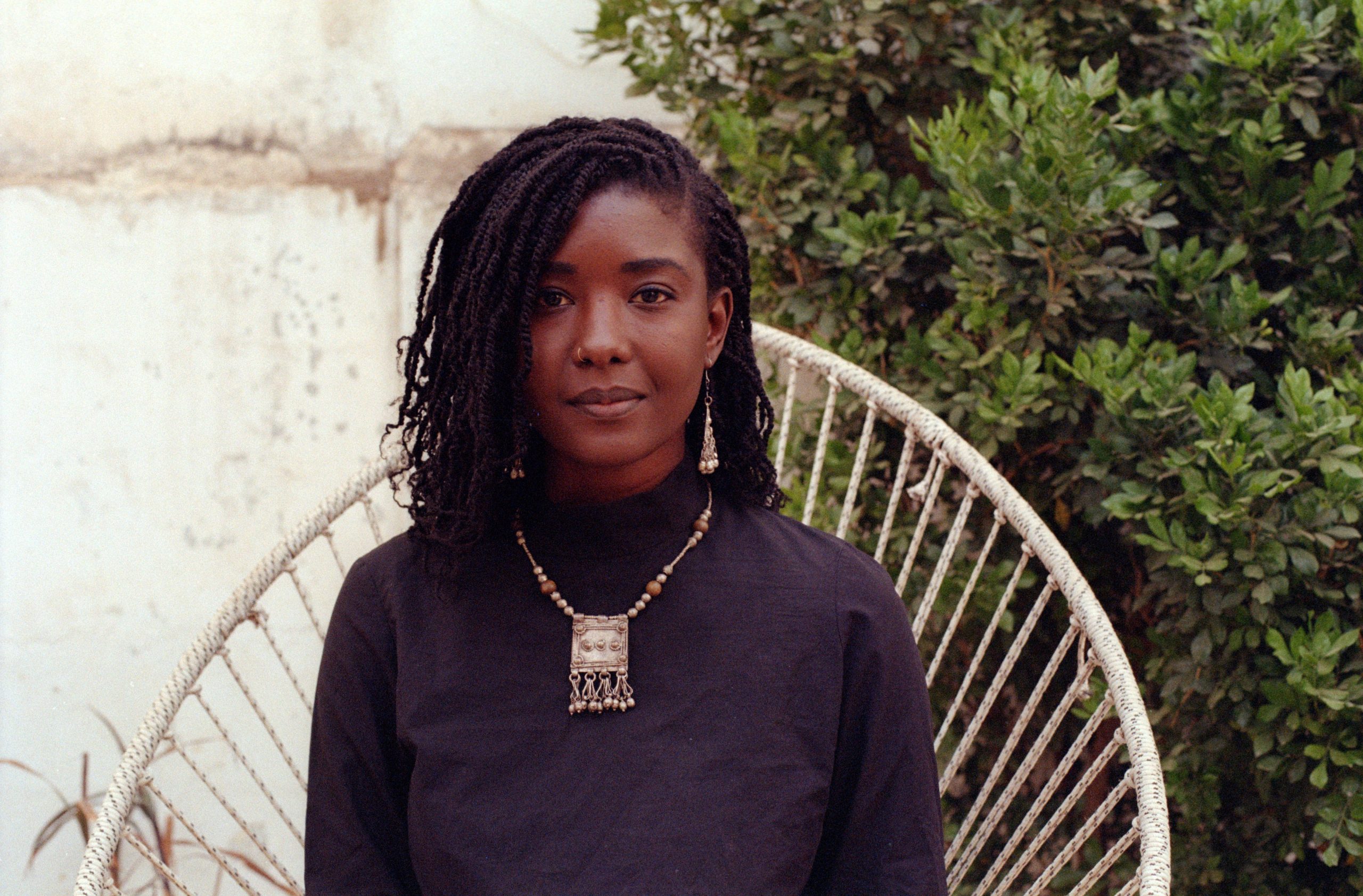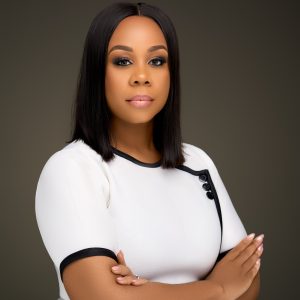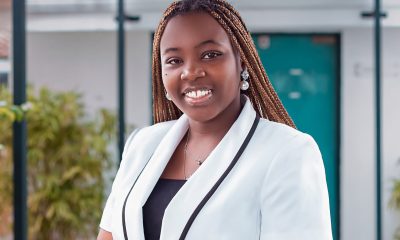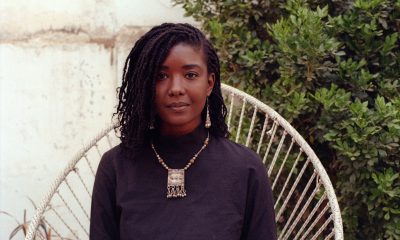Afripreneur
Meet Seipati Mokhuoa – CEO Southern African Women In Leadership (SAWIL)

Seipati Mokhuoa – CEO Southern African Women In Leadership (SAWIL), Gender Equality Advocate and Strategist. She believes Self-leadership is the foundation of excellence. Her organisation supports and enables seasoned female professionals to realise their true potential irrespective of age, race, religion, background, etc. In this interview with Alaba Ayinuola, Seipati talks about her entrepreneurship journey and how she’s leading the transformation and gender equality initiatives across Southern Africa with SAWIL. Excerpt.
Alaba: Could you tell us about South African Women in Leadership (SAWIL) and the gap its filling?
Seipati: SAWIL is an organisation established in 2014 for women in leadership as well as aspirant leaders. The membership composition is made up of supervisory, management, senior leadership and executive roles within the Southern African Leadership framework. We’ve spent the past 5 years doing research and understanding some of the underlying influences, legacy issues and overall lack of appetite to address the vast and incessant gap which exists in terms of skills retention, leadership development, executive coaching, gender parity and equality in the workplace. A global phenomenon we feel we are more than equipped to address through our campaign #SAWILVision2030.
We support and enable seasoned professionals (women) to realise their true potential irrespective of age, race, religion, background – each woman’s contribution still remains critical to the relevance of our ‘present-day’ society and the advancement of the African economy.We also have golf days, where the social (and therapeutic) aspects of golf is discovered. This pastime is a wonderful tool to encourage networking and opens the pathways to endless opportunities.
Alaba: Have you always been entrepreneurial? What sparked your interest into founding SAWIL?
Seipati: Yes, definitely! My late dad was an entrepreneur. I remember back in High school I used to negotiate with him to take some of the stock from his businesses to sell at school and he profusely repudiated no matter how many times I tried. His argument was that it would distract me from my school work. However, in Grade 10 – two of my favorite teachers (Business Management and Biblical Studies) put money together and bought boxes of “champions” sweets and sent me on my entrepreneurial journey. The agreement was that it would be our little secret because they saw and understood the entrepreneurial hunger in me. We did this until Grade 12 (Final Year of High School) – and oh, I passed both subjects with distinctions.
The birth of SAWIL was a mere response to the challenges I faced as a young Woman in Leadership in one of the most untransformed regions of our country post-Apartheid. My first leadership role was at the age of twenty four, 10 years ago. I think it’s safe to say I was one of the Guinea pigs of Leadership transformation in the organization, more specifically in our division. The top performers, even to this date – are white males. Seeing the lack of women in boardrooms as I climbed the corporate ladder opened my eyes to a sad reality with reference to gender parity and equality in the workplace. So, I began my research. As a result, the solutions we offer at SAWIL are both research based and lived experiences.
Alaba: Recently SAWIL Golf was confirmed as the official host of the international women’s golf day representing Africa. How do you feel and can you share more on this?
Seipati: I am obviously ecstatic about this amazing opportunity to showcase and represent our beautiful continent but due to the unfortunate Coronavirus outbreak, we might have to postpone to a later date. The #WomensGolfDay is a global event where women from all walks of life come together to play golf on the same date at over 900 locations worldwide. SAWIL Golf applied to be the Africa host and as God would have it, we were approved.
What makes it even more significant is that the event is usually hosted by Golf clubs. We don’t own a golf course, however, we are the fasted growing women’s social golf club in SA and that makes us stand out. So if there are any investors out there keen on funding Africa’s first female owned golf course – call me?! I have the perfect spot! (Giggles)
Alaba: If any, what challenges have you experienced as a woman in business?
Seipati: To be honest, I haven’t really had it as tough as most African entrepreneurs do. I only left my job in late 2018 and was smart enough to make some good investments which basically take care of my month to month needs. I do however fully understand some of the biggest challenges most entrepreneurs in the continent face such as access to funding and markets hence, we as SAWIL, are in the process of launching a fund to assist women entrepreneurs in the continent to take advantage of the level playing field that is 4IR.
Alaba: What are some of your biggest achievements since you launched SAWIL?
Seipati: Our decision to expand to South African Development Community (SADC) and the warm reception thus far. SAWIL Golf was launched in 2018 but has become a great pillar of the organization. The launch of our research based solution under #SAWILVision2030 and the inaugural launch of Southern African Women In Leadership Top 30 rising stars.
Alaba: Why do you think it’s important that we make equality a priority and what would women bring to the table that you think the world needs now?
Seipati: Research suggests that women in executive positions and on corporate boards can have a positive impact on a company’s performance, that diverse C-suites tend to yield higher margins, bigger profits, and better total return to shareholders.
At SAWIL, we are cognizant of the new wave of leadership that is illuminating the world: they are young, bold, smart, fluid, disruptive, global citizens who have mastered the art of collaboration. As part of the #SAWILVision2030 campaign, rather than using traditional models, we invite women to be part of a new, more collaborative approach to leadership. Rakhi Voria once said “While we may be individually strong, we are collectively powerful.”
In this age of disruption, we cannot continue to sit on the side-lines and wait for someone to invite us to the table. I want to encourage women today to take their power back and start putting their money where their mouth is. There’s a generation of young women rising. They are fearless, intelligent, bold, entrepreneurial and overall global trendsetters. But even these women do not yet fully own their power.

Women continue to be discriminated against and their contributions undervalued, they work more, earn less and have fewer choices about their bodies, livelihood and future than men. But what if we realised our power and influence and used it accordingly and where it matters most?
#SAWILVision2030 is a decade long campaign calling on all women to be at the forefront of creating women empowered workplaces, where equality, diversity and inclusion are not mere conversations in boardrooms full of white males, a few men of colour and a woman here and there. We need to put our money where our mouth is. Be intentional about where you bank, buy your car, house, which medical aid you use, which insurance company you’re with, where you buy your phone(gadgets), clothes, food, which service provider you are with, schools etc.
This is a call for all women to take action. What most companies have done very well is to appoint just enough women into entry level jobs, mid management and somewhat senior management but decision making roles are locked and the glass ceiling only has a few cracks here and there. Ours is to shutter it!!! The time for women to stand together is now.

Alaba: As we celebrate the International Women’s Day 2020, what are your expectations?
Seipati: My expectations are the same as the past decade or longer. We need more women in decision making roles. Corporate or business must step up and make gender parity or equality, diversity and inclusion part of their strategy. Our economies depend on it!
Alaba: What’s the future for SAWIL and what steps are you taking towards achieving it?
Seipati: To be at the forefront of leadership transformation and gender equality initiatives across Southern Africa. We have the strategy and are ready to serve. What we need is for the private sector to open its doors. We will not stop knocking until we see change.
Alaba: How do you feel as an African entrepreneur?
Seipati: I am very excited at the prospects of the future. There is an uprising happening. Young, woke African entrepreneurs are emerging everywhere and they are ready to maximize on the opportunities the Fourth Industrial Revolution (4IR) presents. We are no longer just beneficiaries. We are innovators, disrupters and pioneers!
Alaba: Kindly give a piece of advice for aspiring female leaders reading this.
Seipati: Self-leadership is the foundation of excellence. Take time to invest in yourself. Growth and change are constants on this journey, so practice patience and compassion at all times. Remember, no one is going to hand you anything – get up, grind and get what’s yours. We don’t get what we deserve; we get what we ask for. If there is no seat at the table, create your own table.
B I O G R A P H Y

Seipati Mokhuoa is a seasoned professional with over 10 years’ experience in the Financial Services industry. She built her way up in the banking sector as a teller, multiskilled consultant and builds her way up. And later transitioned to the Insurance sector where the vast majority of her responsibilities involved providing leadership and strategy in terms of the execution of the larger organization’s strategy, sales and productivity, budget control, people management, stakeholder relations (internal and external), operational support, innovation, infrastructure, HR and IT.
In 2018, she took a bold step to change careers and began to position herself to take full advantage of the opportunities presented by 4IR. A passionate strategist and innovator by nature, the digital marketing space appealed to her and presented various opportunities she believes will shape and change the face of marketing in the African continent.
Seipati is a serial and passionate social entrepreneur who believes that the “future of work” is going to unlock greater opportunities for young African entrepreneurs and innovators. Currently pursuing a Masters/Msc in Innovation and Entrepreneurship, she aims to encourage and empower more young people to take entrepreneurship seriously and take advantage of the opportunities that lie ahead.
Afripreneur
Meet Nzinga B. Mboup, a Senegalese architect committed to climate-friendly construction for African cities

Nzinga B. Mboup is a Senegalese entrepreneur and registered architect, who stands out for her commitment to sustainable and climate-friendly construction for African cities. Her background, influenced by a pan-African upbringing, has allowed her to develop a unique approach to design, centered on environmental sustainability.
She studied at the University of Pretoria and worked for two years in Johannesburg, before continuing with a Masters in Architecture at the University of Westminster in London. She then worked for three years at Adjaye Associates, predominantly on the IFC headquarters in Dakar.
In 2019, Nzinga co-founded WOROFILA where she led various earth projects such as the Sendou home, the Ngor house and the Goethe-Institut in collaboration with Kéré Architecture. She has also co-authored DAKARMORPHOSE and HABITER DAKAR, two research projects that center Dakar’s urban history and raise today’s critical conditions.
Worofila mission is to participate in the construction of a sustainable world, specializes in architecture and bio-climatic construction using local materials such as raw earth and typha, with the aim of promoting sustainable, economical and climate-adapted architecture.
Afripreneur
Creativity, Data, and Innovation: Tutu Adetunmbi’s Vision for Africa’s Marketing Future with Stamfordham

Tutu Adetunmbi is a visionary leader and dynamic entrepreneur driven by creativity, data, and innovation. As the CEO of Stamfordham, a leading creative marketing and innovation agency based in Africa, she has led transformative strategies that have fueled business growth, supercharged brand visibility, and driven client success. With a strong foundation as a social media strategist, brand storyteller, and innovation strategist, Tutu has a digital track record across various industries, including beauty, lifestyle, tech, and hospitality. She has collaborated with both global and local brands like L’Oréal Luxe, Coca-Cola Nigeria, Shea Moisture, Whitley Neill Gin, Mitsubishi Motors, and Sterling Bank. In this exclusive interview with Alaba Ayinuola of Business Africa Online (BAO), Tutu speaks on her entrepreneurship journey, and her vision for Africa’s Marketing Future with Stamfordham. Excerpts.
Alaba: What inspired your entrepreneurship journey, and why did you start a creative agency?
Tutu: My entrepreneurship journey started because I fell in love with marketing. It’s always been in me, even when I was a lawyer. Back then, I started a blog to dissect legal news and updates in a fun, relatable way for young lawyers. That experience showed me I had a natural ability to bring ideas to life digitally. So, when I left law and entered the digital space, everything started falling into place.
As the Digital Editor at SCHICK magazine, I realized I was a natural-born ideator and creative. Ideas came so easily to me—it felt like second nature. After SCHICK, I ventured out on my own, and relationships I’d built in that role started reaching out to me. Before I knew it, I became a consultant for some of Nigeria’s leading companies. I didn’t realize it then, but I was already ideating on experiential marketing, content strategy, UGC, design, engagement, and overall strategy. I was just having fun and learning along the way, and somehow, I was building a name for myself.
Stamfordham, my agency, is the product of countless failures, pivots, and moments of clarity. It’s a reection of my growth, my becoming, and my evolution.
Honestly, I didn’t choose entrepreneurship—who wakes up and chooses sleepless nights and stress? But I couldn’t ignore the pull. I knew I wanted to shape the future of marketing in Africa. The more I learned, the more I wanted the industry, the professionals, and even the perception of marketing to evolve. Stamfordham was born out of that desire. It’s not just an agency; it’s proof of what’s possible when you lean into your passion and let it lead the way.
Alaba: Can you walk us through a notable project or campaign your agency has worked on?
Tutu: One of the standout projects Stamfordham has worked on was the 7th Edition of the Niyi Adesanya Leadership Bootcamp (NALB), a premier program designed to empower C-suite executives, business owners, and decision-makers across Africa. The theme for this edition, “The Next Chapter Leadership,” focused on preparing participants for the evolving demands of leadership.
What made this project special was how we went beyond traditional marketing. We developed the NALB Experience Portal, an innovative platform that revolutionized how attendees engaged with the event. The web app which we developed in a week gave participants access to curated content, allowed them to connect with their assigned teams, and facilitated a competition element that made the bootcamp more interactive and impactful.
Our work didn’t stop at the portal. We crafted the messaging, conceptualized the event’s storytelling, and designed experiential elements that brought the theme to life. From pre-event buzz to post-event evaluations, we ensured every touchpoint aligned with the overarching goal of redefining leadership.
The success of the campaign was evident in the feedback from participants and the client. The portal alone was a game-changer and for Stamfordham, it was a defining moment for us as we step into the next phase of Stamfordham- blending creativity, strategy, and innovation to deliver results that not only meet but exceed expectations.
Alaba: What is your approach to brand storytelling, and how do you help clients uncover their narrative?
Tutu: My approach to brand storytelling is rooted in two key ideas: understanding who the brand is today and envisioning what it could become. It’s not just about how the client sees themselves but also how their most loyal customers perceive them. Often, the true story lies in that connection, and I work to turn that into a narrative that feels authentic yet aspirational.
I believe every brand has a story, even if they don’t know it yet. My role is to help them uncover it, shape it, and tell it in a way that resonates.
Sometimes, a brand’s perception of itself doesn’t align with what it is—or what it has the potential to be. That’s where I come in. I push beyond the current outline and map out a vision that’s bigger, bolder, and more impactful. This process involves digging deep, not just into their history and goals, but into their audience’s experiences, desires, and feedback. I ask, What does this brand mean to the people who already love it? What could it mean to even more people?
Of course, convincing a client to see beyond their comfort zone can be challenging (and sometimes hilarious). But I thrive on that challenge. I use storytelling to paint a picture of what’s possible and show them how aligning their story with a bigger vision can transform their brand into something truly unforgettable.
Ultimately, my approach isn’t just about telling a story—it’s about telling the right story, one that reflects where the brand is now while paving the way for where it could go. That’s when real magic happens—when a brand isn’t just a name but an experience people want to be part of.
Alaba: What role do you think technology plays in enhancing brand storytelling?
Tutu: It is a game-changer for brand storytelling—it’s the bridge between the story and the audience. Technology transforms brand storytelling by enabling personalization, real-time engagement, and immersive experiences. It also enhances consistency, data-driven insights, and authenticity, allowing brands to create narratives that are innovative, interactive, and deeply resonant with their audiences.
Tools like AI and data analytics allow brands to understand their audiences better than ever before, Technology also democratizes storytelling. Social media, for instance, has turned brands into publishers, giving them platforms to tell their stories directly to audiences in real time. User-generated content (UGC) takes this a step further by allowing customers to contribute their voices, making the story feel authentic and community-driven. It’s also a great source of income globally.
It also enhances experiential storytelling. From interactive videos to AI-generated designs, technology drives innovation. It opens doors for creativity that push storytelling boundaries. For Stamfordham, technology is at the heart of how we help brands connect with their audiences—not just through words but through experiences that stick.
Alaba: How do you ensure collaboration and alignment between clients and your agency team?
Tutu: At the core of it all is trust, clear communication, shared goals, and mutual respect. It starts with setting the tone early in the relationship. We make sure both sides understand that we’re partners working towards the same objectives—not just a service provider and a client.
We have been described as “brutally honest”. We don’t take jobs that we don’t feel aligns with our dream client. Most people are shocked how we screen clients. We kick o every project with a deep-dive session to align on goals, expectations, and deliverables. This ensures that everyone is on the same page from the start. Throughout the process, we maintain regular check-ins to keep communication open and to adjust as needed. Transparency is key—if something isn’t working or needs to change, we address it immediately.
Our systems are our super power and it’s intricately connected to streamline the clients’ journey. We call it the Stamfordham Signature Framework.
Internally, I emphasize the importance of listening and empathy within the team. It’s not just about executing the client’s vision but understanding their perspective and adding value. At the same time, I give my team full autonomy to bring their expertise to the table and confidently suggest ideas or strategies that can elevate the project. My team is made up of all leaders and they know it.
We move with shared vision front and center, we create an environment where everyone can be themselves and work with forward-thinking clients so collaboration thrives and alignment feels natural.

Photographed By Humphrey Ominisan
Alaba: What have been the biggest challenges you’ve faced as a creative agency founder?
Tutu: One of the biggest challenges I’ve faced as a Founder is navigating the tension between creativity and business operations. I love the creative process—ideating, strategizing, and bringing ideas to life—but running an agency requires just as much focus on processes, nances, and team management. Balancing these two sides has been an ongoing learning curve.
Another challenge is client education. Many clients come to us with a fixed idea of what they think marketing should look like or what they believe their brand is. Sometimes, the vision we propose feels too bold or unconventional to them, even when it’s what they need to grow. Convincing them to take that leap of faith is a mix of storytelling, evidence-based results, and patience.
Building a strong team has also been a challenge. The right people are everything in this industry, and it’s not just about finding talent but finding aligned talent—those who believe in the Stamfordham vision and are willing to push creative boundaries with me. It’s tough, but when you get it right, the synergy is incredible.
Lastly, managing growth has been a significant hurdle. As Stamfordham has grown, so have the complexities—bigger projects, higher client expectations, and the pressure to deliver at an even higher level. Scaling while staying true to our creative DNA and maintaining quality has been challenging but deeply rewarding.
Alaba: How do you envision the future of marketing in Africa?
Tutu: The world is moving at breakneck speed, and the digital age has unlocked opportunities like never before. Businesses now have endless ways to connect with their audiences, build relationships, and drive growth. But let’s face it—if you’re not leveraging data, you’re already behind.
Here’s the hard truth: data is the backbone of innovation, transformation, and success in marketing. It’s a goldmine…if you know how to leverage it.
While data on its own is powerful, it truly comes alive when paired with creativity. Numbers tell the story; creativity brings it to life. And with that story, you can do so much. You can turn it into a strategy, make informed decisions, and, ultimately, use it to your advantage.
For instance, when you integrate advanced analytics with bold ideas, the result isn’t just a campaign that’s seen—it’s one that’s felt. You can tap into how your audience feels, what they want, and what they didn’t even know they needed. From reducing costs to identifying profitable opportunities, data-driven decisions maximize resources and open up new pathways to growth.
The Marriage of Data and Creativity is the future. …This isn’t just a buzzword combo—it’s a game-changer. Some of the biggest brands are already winning with it.
The Future is Personal! And here’s the thing—you can hack Personal. It’s all about understanding consumer preferences, patterns, and behaviours. Data makes that possible. It allows brands to cut through the noise, predict trends, and deliver experiences that stick.
We live in a world where customers expect personalization. They want to feel seen, understood, and valued. If you’re not using data to craft tailored interactions, your brand risks becoming irrelevant.
It’s time to redefine what’s possible at the intersection of data, creativity, and strategy. It’s time to revolutionize how businesses in Africa leverage data to fuel their digital transformation and marketing innovation. This is the future we’re creating at Stamfordham. We’re at the helm of a shift that’s set to redefine how businesses in Africa approach marketing and digital transformation.
Alaba: Lastly, What advice would you give to aspiring entrepreneurs or brand storytellers?
Tutu: Everyone has a beginning and more often than not, what you see is the nished product. You do not see person who showed up and worked everyday,. Who cried, who doubted themselves, who kept going, who failed, who stumbled. It took many seasons of development, but you compare yourself to the nished product. Success is a must, failure, you must trust. Good, is wonderful, bad, has a lesson. Accomplishments are expected, disappointments, don’t worry. All is good…it is just when it comes that confuses you.
The more you put yourself out there, the easier it is for people to nd you, for your name to come up when they are thinking of something or someone or somewhere to go to. That, is top-of -mind awareness and it is heavy. Leverage on that by showing up as often as you can. So not run from being seen, that fear is setting you back more than you know it. Do not look at anyone, your friends, your family…anyone, put your essence out there. You have a gift, a magic sauce that only you can deliver. If you limit yourself, you also limit the lives that could have been transformed or inspired by your becoming.
By virtue of your personal lived experiences, you are ALWAYS an expert to somebody else. Your essence is enough to open doors. You don’t have to change who you are, follow a known pattern or do what everyone else is doing. It’s that quirk you hate about yourself that may be the thing that sets you apart. Who you are is exactly who you need to be to achieve the thing you were sent here to do. At your core, you possess the qualities, strengths and unique characteristics necessary to make your mark. You were tailored already to achieve your highest potential. If only you can see it. Accept and value every part of yourself , including the parts you might not fully appreciate.
Afripreneur
Meet Datari Ladejo, the digital strategist helping brands thrive in the digital economy

Datari Ladejo is a lawyer, digital strategist, and a passionate advocate for women’s empowerment. She is the Founder/CEO of Fernhill Digital, a consulting group of companies dedicated to helping individuals and businesses thrive in the digital ecosystem, through data-driven digital solutions. Datari is also the creative force and founder of Evergreen Curators, a creative marketing agency that empowers brands with bold and innovative digital marketing. As a passionate advocate for women’s empowerment, Datari champions initiatives that elevate and support women in the male-dominated tech industry and serves as a leader and mentor in several women’s organizations. In this exclusive interview with Alaba Ayinuola of Business Africa Online (BAO), Datari speaks on her entrepreneurship journey, passion for storytelling, community building and how she is helping brands connect authentically with their audiences. Excerpt.
Alaba: Can you briefly share with us your entrepreneurship journey? What inspired you to start the Fernhill Digital and Evergreen Curators and what problem do they solve?
Datari: My entrepreneurial journey began almost two decades ago, when I was just 18. Driven by a desire for financial independence I co-founded “Pink Mojito Events” with a university friend. Since then, entrepreneurship has been a constant in my life, often running parallel to full-time employment. My legal background, with a law degree, an LLM in international dispute resolution and economic law, and a call to the Nigerian bar in 2013, has instilled in me a strong desire to challenge the status quo. I believe that true entrepreneurial impact comes from a deep-seated drive to identify problems within your society and implement innovative solutions.
Fernhill and Evergreen are both deeply personal projects. I founded Fernhill during a significant career pivot from law to tech. My passion for storytelling and community building ignited during the pandemic through my YouTube channel “The Dee Low” inspired me to help brands connect authentically with their audiences. I saw a gap in the Nigerian market where brands often prioritize advertising over genuine engagement. My mentor’s belief in my vision and her decision to become my first client gave me the push to take the leap.
Evergreen emerged as the next step in Fernhill’s evolution. After a challenging period that nearly forced me to shut down the business, I restructured the business with the help of a consultant and mentor. This revitalization led to the birth of Evergreen Curators, our creative agency. By doubling our team, and streamlining our processes, we positioned ourselves for significant growth and expanded our service offerings.
Alaba: What sets you apart as a digital strategist?
Datari: Honestly, my secret sauce is an ability to blend digital strategy with a deep understanding of human psychology. My background in international dispute resolution really equipped me with a unique perspective. In arbitration, my specialization and key focus area, the main objective is to get nations or large corporations to settle out of court. Having two young children, I know firsthand how difficult it is to resolve even a simple issue of who gets to play with a particular toy. Now imagine that with a country or a state-owned corporation, the toys are a lot bigger, and it gets messy really quickly.
To truly reach an amicable resolution that benefits both parties you have to understand people’s motivations on a deeper level and learn how to read between the lines. The same principles apply in the digital ecosystem. By understanding the underlying motivations and emotions of a particular target audience, it becomes easier to craft strategies that resonate deeply with them and drive meaningful results.
Ultimately, my goal is to use my skills and experience to help businesses connect with their audiences in a new way and create digital experiences that are truly transformative at every touchpoint.
Alaba: Can you share your journey of building a successful online brand? How do you measure success and what metrics do you track?
Datari: For anyone that wants to build a strong online brand, it’s a journey that requires dedication, consistency, and a deep understanding of different platforms and digital marketing techniques.
For my personal brand, I try not to get too caught up in the numbers but for my companies Fernhill and Evergreen, measuring success is an ongoing process. While traditional metrics like website traffic and social media followers are important, we also prioritize qualitative measures like engagement, brand sentiment, and client satisfaction. Tracking these metrics helps us understand how well our brands are resonating with our target audience and identify areas for improvement. This iterative approach means that we are always testing out new tactics and letting go of those that aren’t working or serving the needs of our audience anymore.
Alaba: How do you stay ahead of the competition, and how do you see AI impacting your business operations?
Datari: Firstly, just like in life your major competition trying to build a brand online is yourself, and the major struggles that I see people face are trying to stay relevant and how to stand out amongst all the noise. It’s important not to sugarcoat the reality of the digital ecosystem, it is evolving so rapidly that if you don’t keep up with the latest developments you will get left behind. Also, if you focus on the competition too much you will not only lose momentum but also neglect the one key thing that audiences are looking for these days…the most authentic version of yourself or your brand.
We are already embracing AI in Fernhill and Evergreen to help us operate more efficiently. Our next major focus will be tailored training to make sure that each member of our team is equipped with the knowledge to use AI tools to work faster, smarter, and to help deliver better business outcomes for our clients.
Alaba: What drives your passion for building businesses in the tech industry, how do you stay motivated?
Datari: My major motivation is the fact that the tech industry really changed my life, and building businesses that help people navigate the complex digital ecosystem is my love letter to tech, it’s my way of paying forward the world of opportunities that the industry gave me. I never thought that I would leave legal practice behind, especially as a newlywed with a newborn child. The decision was tough, but I knew that taking a leap of faith would either be career suicide, or I would figure it out along the way and discover a true passion. I have so many varying interests across marketing, communications and strategy but they are all inextricably linked and each one fuels my passion for innovation.
Alaba: Would you like to share any exciting projects or initiatives on the horizon?
Datari: Our most recent project was the restructuring of Fernhill to a parent company and the launch of our subsidiary creative agency Evergreen. In 2025, we have 3 major projects planned, which are still under development but each one involves breaking into new territories, which is exciting for us.
Alaba: Lastly, what advice would you give to aspiring entrepreneurs?
Datari: For aspiring entrepreneurs my advice would be to start small but think big. Don’t be afraid to start with a minimal viable product and then iterate from there. The key is to get your product or service in front of customers as soon as possible.
Secondly, passion is paramount. Your passion will fuel your drive and help you overcome challenges and when you are passionate about what you do it will show in your work.
Also, learn to be agile. The business landscape is constantly changing so you need to be prepared to pivot your strategy as needed. My most valuable advice would be to nurture relationships with other entrepreneurs or people in your industry, surround yourself with people who will inspire and support you. Those relationships are critical when you are trying to build something outside of your comfort zone.
B I O G R A P H Y

Datari Ladejo is a lawyer, digital strategist, and a passionate advocate for women’s empowerment. Her robust educational background includes an LLB in Law from the University of Staffordshire, BL from the Nigerian law school, and an LLM in International Dispute Resolution and Economic Law from the University of London Institute in Paris.
She is the Founder/CEO of Fernhill Digital, a consulting group of companies dedicated to helping individuals and businesses thrive in the digital ecosystem, through data-driven digital solutions. Datari is also the creative force and founder of Evergreen Curators, a creative marketing agency that empowers brands with bold and innovative digital marketing.
As a passionate advocate for women’s empowerment, Datari champions initiatives that elevate and support women in the male-dominated tech industry and serves as a leader and mentor in several women’s organizations. She is an active member of the Society of Women Engineers and serves on the board of The Rebuilding Lives Mission, a non-profit focused on equipping women and youth in rural Nigeria with entrepreneurial skills.
Additionally, she co-founded the Advanced Level Youth Empowerment Foundation, addressing critical issues like education and unemployment among Nigerian youth.
Beyond her professional achievements, Datari is a devoted mother to her two children, Tiara and Tije. She shares her journey of motherhood and marriage on social media, inspiring women to embrace progress over perfection in their lives.
-

 Afripreneur3 days ago
Afripreneur3 days agoMeet Datari Ladejo, the digital strategist helping brands thrive in the digital economy
-

 Afripreneur10 hours ago
Afripreneur10 hours agoCreativity, Data, and Innovation: Tutu Adetunmbi’s Vision for Africa’s Marketing Future with Stamfordham
-

 Press Release1 day ago
Press Release1 day agoThe 234 Venture Vault Launches Tech Startups and Talents Hunt Across Nigerian Tertiary Institutions
-

 Afripreneur9 hours ago
Afripreneur9 hours agoMeet Nzinga B. Mboup, a Senegalese architect committed to climate-friendly construction for African cities

















